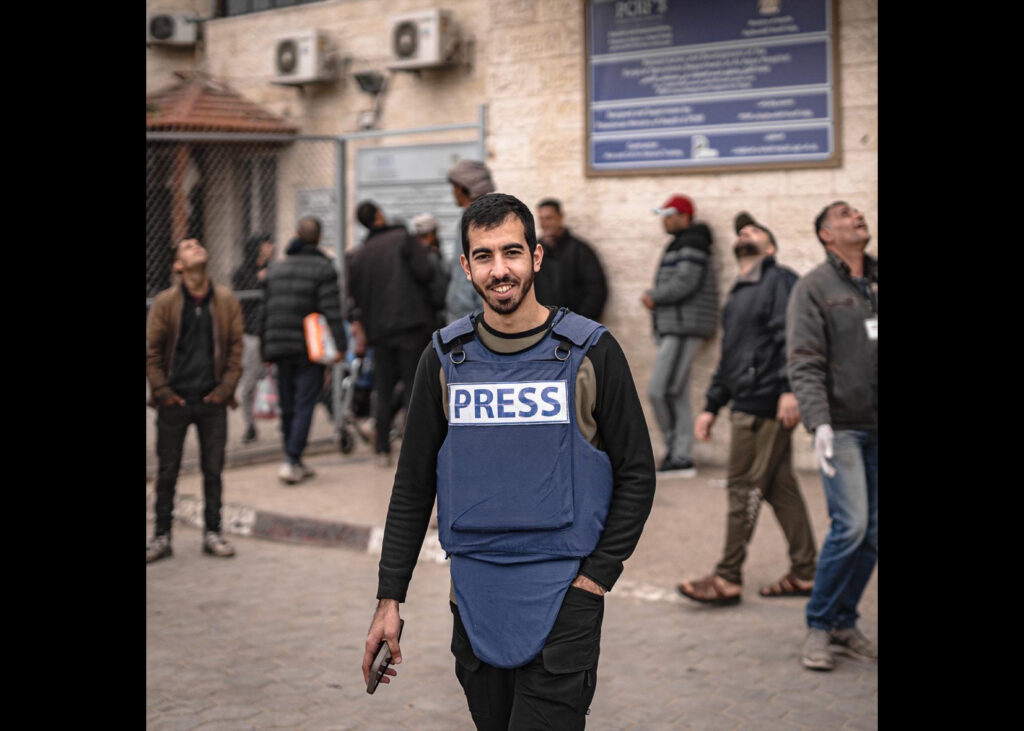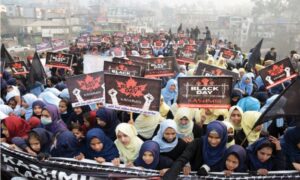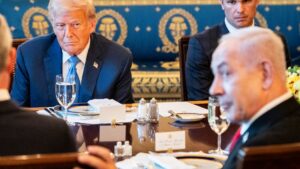
By Saadia Gani
Gaza just breathed a sigh of relief at the news of the ceasefire and the brave return home to the north had begun…
Alas, nothing is sweet for too long, and Gaza was thrown into mourning yet again as one of its brightest stars was martyred — Saleh Al-Jafarawi.
Saleh Al-Jafarawi was the light of Gaza. A young man who wore many hats: journalist, content creator, table tennis ranked player, singer, and a great patron of Gaza who dedicated every waking moment to serving his people, comforting them, and caring for them. He carried the flame of hope and became the voice of Gaza.
He is recorded to have told his dear father: “I will not leave her except to the heavens. I will not abandon Gaza and I will not abandon my mission.”
His mission was to become a window into the very soul of Gaza. Those who followed him were captured by his innocence, youthfulness, compassion, and love for his people. By following him, he found a deep place in one’s heart.
His humanitarian journalism was unparalleled. He could be seen at every disaster, barely escaping death but ready to assist and expose the horrors of the genocide to the world. As a result, this young man was seen as a great threat to Israel, as he was winning so many hearts for the Palestinian cause.
At 28, Saleh witnessed the killing of over 250 fellow journalists by Israel. Two months ago, he expressed how he was targeted and spoke as though foreseeing his fate:
“In the end we know that God is One, and you will only live once.
You either live it with your head held high, broadcasting, audio and video —
and when the end comes and God decrees it for you,
you either get afraid or hide or do whatever they want.
But seriously, we will not kneel to them.
God willing — but in the end, God will decree martyrdom when we are in active duty.”
Even as the world seemed deaf to Gaza’s suffering, Saleh continued to answer its call. In the first year of the genocide, he released a song that became a spiritual testament to Gaza’s resilience:
“يا رمضان (Ya Ramadan — Will You Recognize Us?)” — an intimate conversation with the holy month, asking if Gaza would be seen, remembered, and honored despite its hunger and suffering. The song showed his extraordinary depth of emotion, maturity, and spirituality, and the intimacy with which he carried the heart of Gaza in his voice.
Mid-genocide, he released another song:
“مات النداء (Mat al-Nidā — The Call Has Died)” — a cry to the world’s nations that the call of Gaza had been ignored. And yet, despite the deafening silence from the world, Saleh continued his call for Gaza — recording, witnessing, and testifying until his very last moment.
The tragic irony is that Saleh was on active duty, knowing the price of truth, embracing it, and welcoming his martyrdom.
In the narrow streets of Gaza, cornered by Israeli-backed militia and hunted for simply being a witness, Saleh was tortured and succumbed after being shot seven times. His body was struck down, but his songs, his courage, and his defiance continue to live an eternity.
To add to the tragedy, his brother Nadi was released from prison only to attend his younger brother’s funeral. The scenes of Nadi walking out of a prison cell only to step into the shadow of his brother’s grave capture the cycles of grief and endurance that Gaza has been fated to endure generation after generation. In Gaza, freedom and loss arrive hand in hand, where release from prison is never separate from mourning, and where even in tragedy, love and steadfastness hold their ground.
Saleh Al-Jafarawi’s light did not end with his body. His voice, his songs, his truth, and his love continue to flow through Gaza — through the whispers of Ramadan nights, the echoes of a silenced call, and the witness of those who follow in his path.
“The call has not died.” He will live in every song, every act of courage, every heart that refuses to kneel to oppression and tyranny.
“And never think of those who are slain in the path of God as dead. Nay, they are alive with their Lord, receiving sustenance.”
(Qur’an 3:169)
Saleh Al-Jafarawi is alive.
Alive in the care of His Lord.
*Saadia Gani is a South African attorney with her Master’s in English and Multi-disciplinary human rights.


